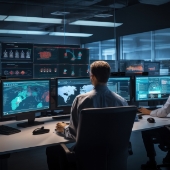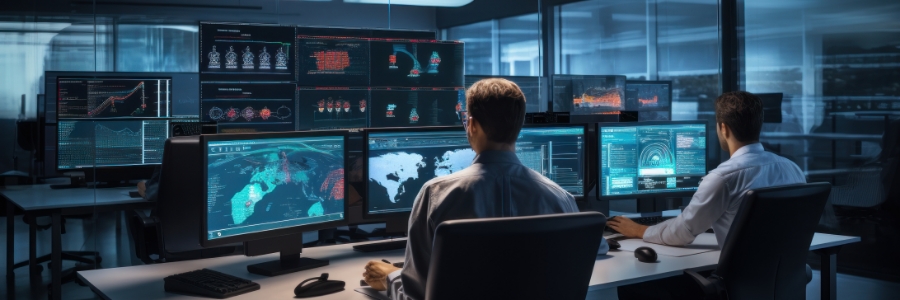
You are duped into installing malware
There are many ways that malware can be installed on your computer without your knowledge or consent. One common way is to download software from torrent websites. When you visit these sites, you may be prompted to download software in order for the site to load properly. However, the software that you download may actually be malware designed to make changes to your system or steal data.
Fortunately, there are things you can do to protect your computer from malware infection:
- Do not download files from websites that you do not trust. If a website asks you to download something, make sure that it is a reputable and reliable source. Double-check the URL of the website before downloading anything. Hackers can spoof legitimate websites by using similar but slightly altered URLs. For example, they might use "www.g00gle.com" instead of "www.google.com." If you are unsure about the source of a file, it is best to avoid downloading and installing it.
- If you are unsure about the name of a file, do not download it. Malware is often given names that are similar to those of legitimate files, with only a slight spelling mistake or some unusual wording. This is done to trick users into downloading and opening the file. If you know the sender, contact them to verify that the file is safe to open.
- Always scan files before installing them. Use antivirus or anti-malware software to scan any file that you download before opening it.
- Avoid using torrents and visiting adult content sites or those that stream pirated videos. These sites and online portals are very common sources of malware.
Hackers exploit a vulnerability to gain root access
Many people use administrator accounts on their computers. This gives them the ability to change settings, install programs, and manage other accounts. However, this also means that if a hacker gains access to their computer, they will have full control over it. This could allow the hacker to install malware, change settings, or even take over the computer entirely.
This is especially dangerous if the computer is used to manage an IT network. In this case, the hacker could gain control of the entire network and cause widespread damage.
To protect your computer from hackers, you should only use administrator accounts when necessary. For everyday tasks, you should use a standard user account. You should also install antivirus software and keep it up to date. Regularly scanning your computer for malware will also help to protect against infection.
Someone gains unauthorized physical access to your computer
Your computer can be infected with malware or have your data stolen if someone physically gains access to it. For example, if you leave your computer unlocked when you go out for lunch, someone could plug in a malware-infected USB drive and infect your system. They could also manually reset your password, locking you out.
To protect your computer from physical attacks, you should secure it with a password and lock it whenever you step away from it. You can also disable removable media drives, such as CD/DVD and USB, if you don't use them. This will limit the chances of someone using these removable media to infect your computer or steal data from it.
A rogue employee infects the system
A disgruntled employee can cause significant damage to a company's IT systems. They could delete essential data, introduce malware, or even take control of the system. This can have a devastating impact on the company, both financially and reputationally.
The best way to prevent this is to limit access to systems. This means only giving employees access to the files and systems they need to do their jobs. For example, a marketing employee should not have access to finance files or the admin panel.
In addition to limiting access, it is also important to have good security measures in place. This includes using strong passwords, keeping software up to date, and having a backup plan in case of a security breach.
Your password is no longer secure
Passwords are the most common way to verify a user's identity when accessing accounts and systems. However, many people use weak passwords that are easy to crack. This is especially dangerous if the same password is used for multiple accounts. If one account is compromised, then all of the accounts that use the same password can become compromised.
Protect your accounts by using strong and different passwords. You should also use multifactor authentication, which requires you to present more than one way to verify your identity. For example, you might need to enter your password and then also provide a fingerprint or a one-time code when logging into your email.
A good cybersecurity posture isn’t achieved through a one-size-fits-all approach. The best way to completely protect your system from online threats is to develop a comprehensive approach that includes adopting cybersecurity best practices and robust tools. You should also provide training to your team and other system users so that they can maximize your organization’s security resources. To learn more about boosting your cybersecurity profile, contact us today.

Leave a comment!